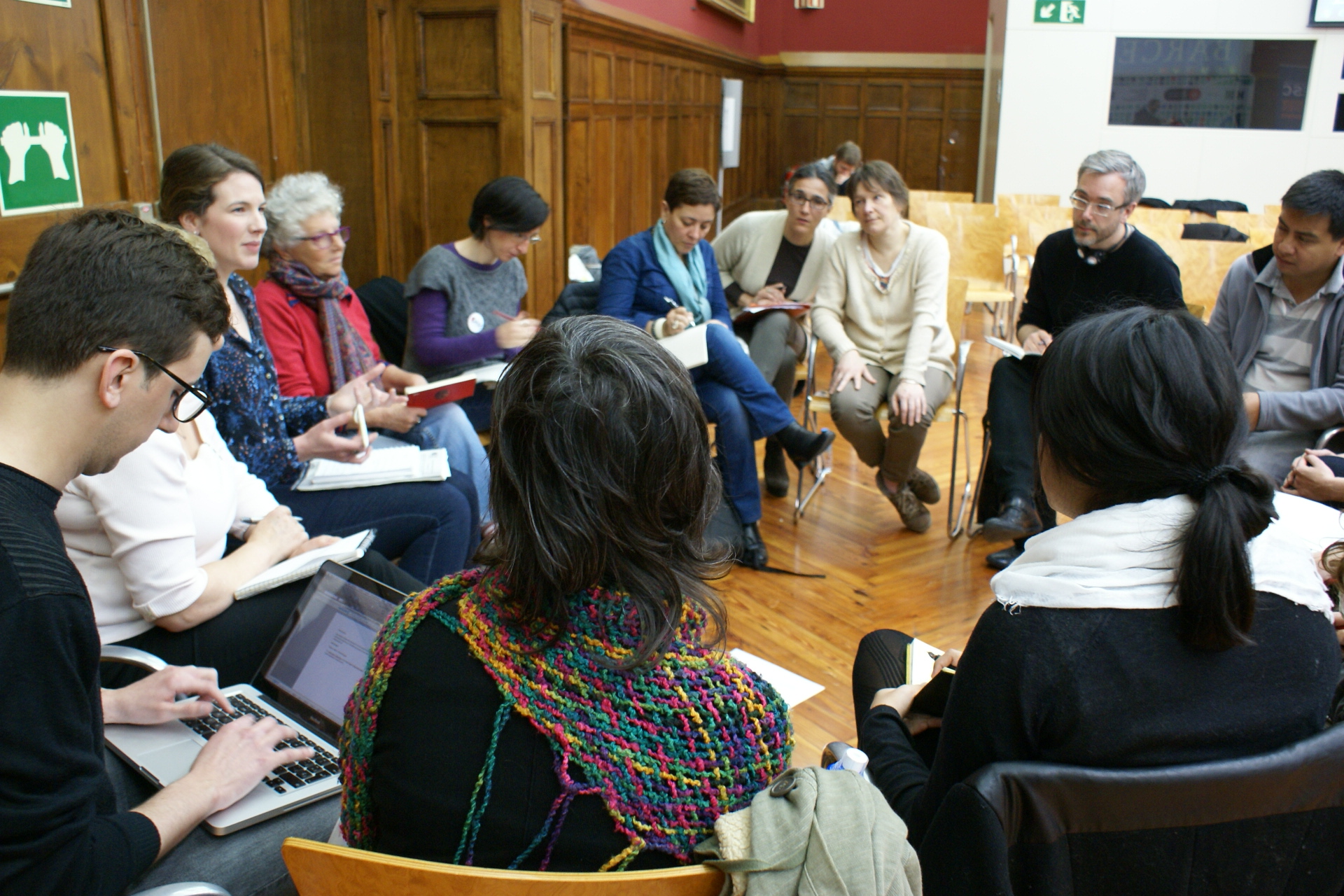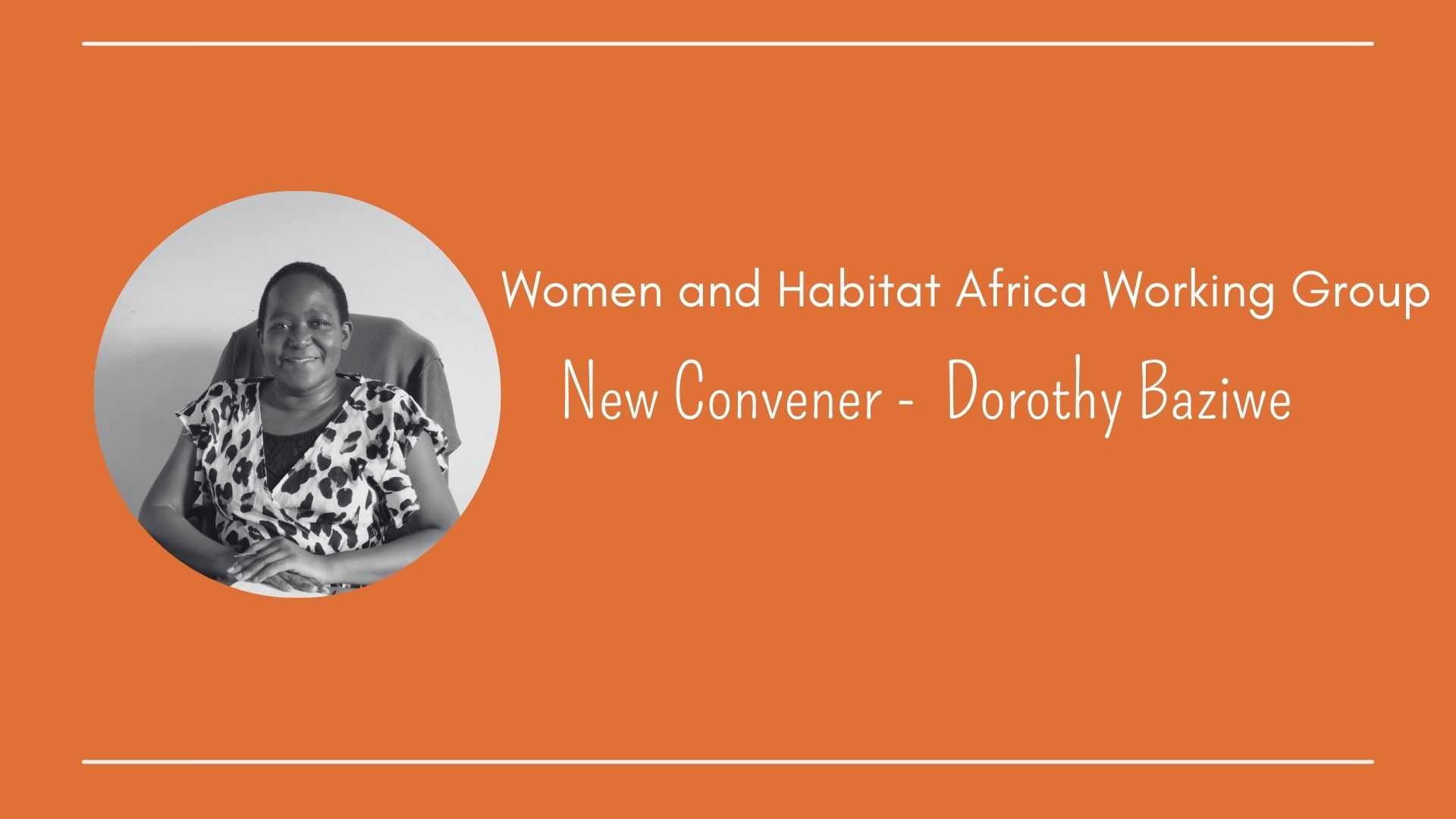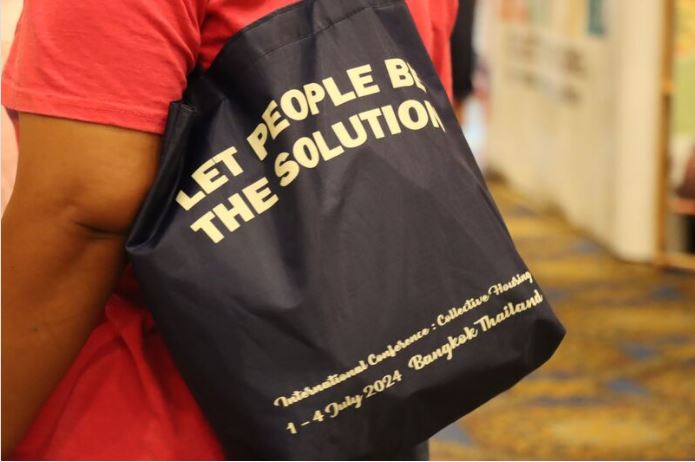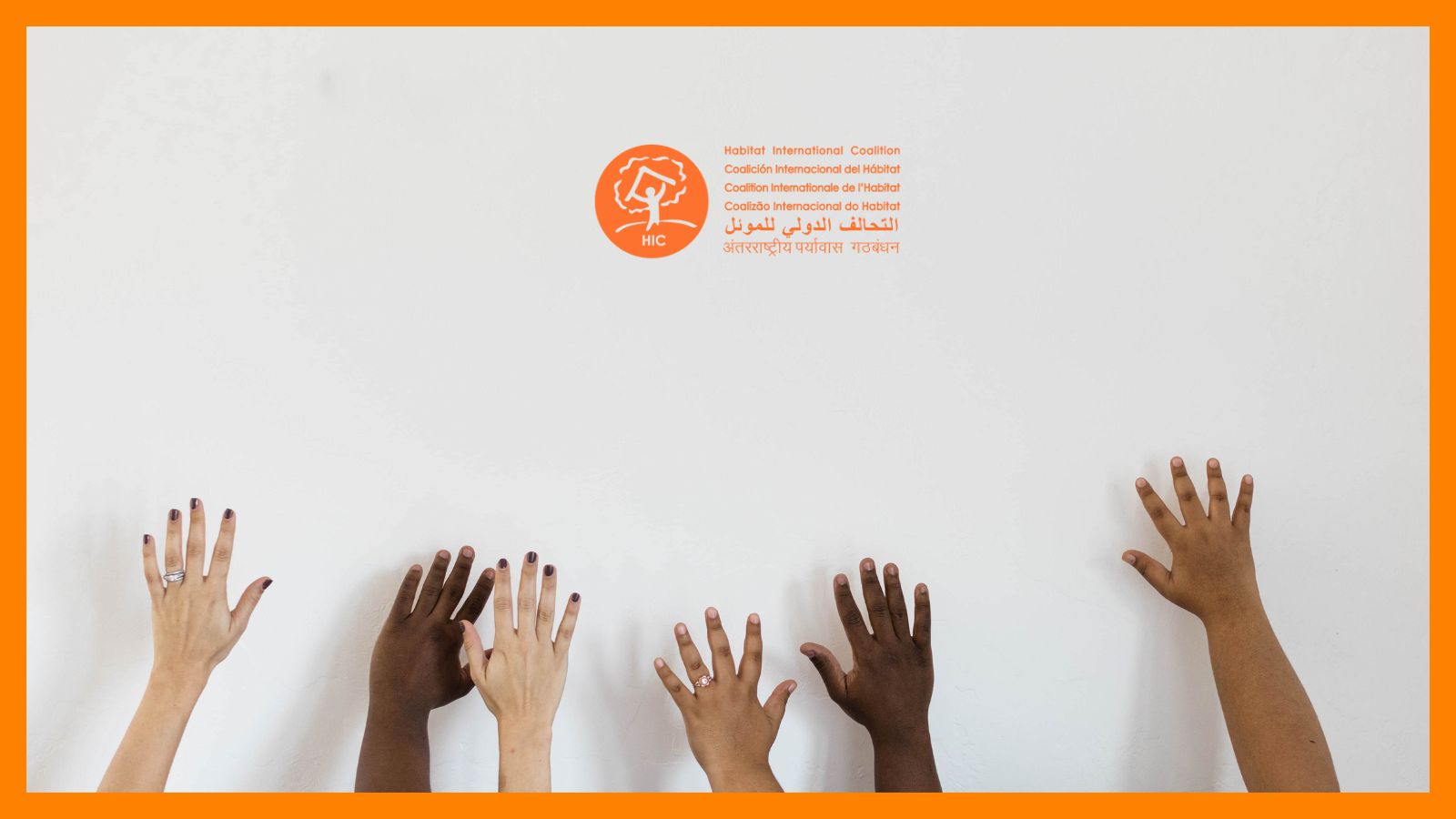
Working group 1 at the European Regional Meeting
At the Mexico City Habitat lll meeting, a session was dedicated to
Social and Solidarity Economy in which RIPESS participated. This also helped us
to move forward in various discussions. RIPESS, as a joined-up solidarity
economy movement promotes the need for an overall economic paradigm shift and
the implementation of a human rights-based economy that is anchored in concepts
such as the social justice of fair income for producers linked to accessible
prices for consumers, and the need to decommodify the economic system (especially
on fundamental aspects such as food, housing, health, education, energy and
other essential public services), and support a community-based approach to
their collective management.
Urgenci, as the global community supported agriculture network is an
active participant in the global food sovereignty movement, and a member of
RIPESS. We have therefore to a large extent taken on the responsibility of
ensuring that the idea of territorial food systems is part of the on-going
vision of including food in the elements that are brought forward in both the
R2C and Habitat lll conversations. This is all the more important as urban
agriculture is estimated to be capable of feeding a maximum of 20% of the
world’s mega cities at best. The importance of preserving peri-urban land for
small-scale food production – especially CSAs, Community gardens, allotments
etc – is therefore key. The use of Community Land Trusts is an important lever
to ensure this land is sustainably protected from speculation, and the Voluntary
Guidelines for the Governance of Tenure of Land, Fisheries and Forests
elaborated by the CFS (UN Committee on Food Security), with the strong input of
Civil Society through the CSM (Civil Society Mechanism), are key tools. Both
CSA and Community Land trusts are mentioned in the Habitat lll Mexico
consultation on finance final declaration, and the need for SSE as an overall
approach and the preservation of public land from speculation and use for food
production in peri-urban areas is clearly mentioned in the Barcelona
Declaration, as is the overall human rights-based approach.
XES, as the local platform for Solidarity Economy, and a RIPESS EU
member was also well represented in promoting this position and shared the
input, both by the director and various members present in both the R2C and
official Habitat lll Barcelona meetings.
During the R2C meeting, there was a workshop on food issues where 2
members of Urgenci participated: Isa Alvarez from Nekaserea in the Basque
Country, and Judith Hitchman, president of Urgenci. Nekaserea are also members
of REAS, the Spanish Solidarity Economy network that is part of RIPESS. Emily
Mattheison from FIAN, the global network of the Right to Food, Laia Fargas
Fursa of DESC, the Catalan Observatory on Economic, Social and Cultural Rights,
and also a member of XES as well as myself all participated as did many others.
Some of the main conclusions of the workshops in which we participated were
that solidarity economy districts such as those in Italy can help to provide a
joined-up response to the neo-liberal economy. SSE allows us to build positive
alternatives of all kinds to reclaim the Commons. These alternatives need to be
scaled out rather than scaled up (i.e. multiplication of many small initiatives
connected at local, regional, national and international levels with bottom-up
governance rather than recreation of large-scale initiatives that are managed
top-down). This implies struggles and bringing pressure to bear to ensure our
historical rights are respected, and poses the question of how to connect to
institutions. States have become largely ineffectual in terms of ensuring
peoples’ economic, social and cultural rights are fulfilled, but it is possible
to work at both UN and Local Authority level towards these goals. SSE, as a
cross-cutting systemic economic paradigm change approach that can provide
answers to making cities more inclusive spaces. Habitat lll should work more
deeply with other UN agencies as many issues that are cross-cutting are not
currently taken up in a holistic way (ILO and FAO in particular, on labour and
food issues).
In terms of the more specific aspects relative to the right to food
and the building of genuine alternative food systems and implementation of food
sovereignty, the implementation of Local Food Policy Councils forms part of a
coherent way forward towards the participatory governance of territorial food
systems. The Milan Urban Food Policy Pact could be one of the means that would
help achieve such results, but indicators are yet to be put in place to ensure
that results can be concretely verified. It is also important that adequate
infrastructure be in place to enable small-scale food producers to access
cities, be it in terms of roads, local farmers’ markets or other aspects. The
work currently being carried out on policy in the framework of the CFS is key
to this.
In conclusion, it is impossible to make the unsustainable
management of cities more sustainable by merely tweaking the details without
changing the fundamental aspects of land and property governance and rights to
housing, food, health, education and social, economic and cultural justice. For
the Right to the City Platform where the re-appropriation of public space
implies social justice and human rights, this is totally in harmony with the
rights-based approach of RIPESS. And as the right to food is also central to
Urgenci and the food sovereignty movement, and CSA is one of the key levers for
feeding cities and also building territorial food systems that mitigate climate
change, we were happy to have had this opportunity to participate in these
meetings and make a small contribution.
The extraordinary dynamics of the newly elected members of the
Barcelona city Council were clear at all moments of the meetings, and truly
inspirational for all those present. May the road set by Ada Colau and her
colleagues lead us all together towards a truly sustainable approach to public
spaces and the Commons!
Judith Hitchman 14th April 2016.


